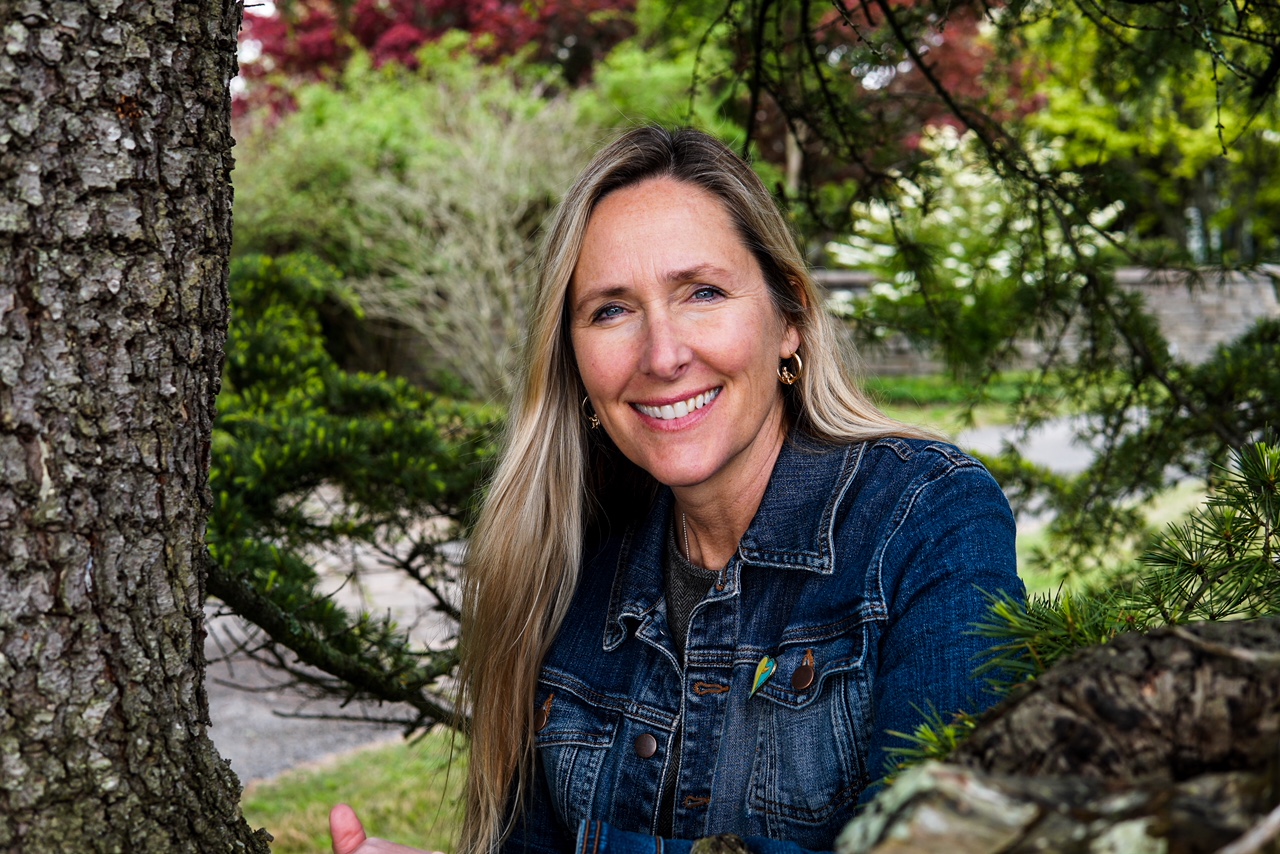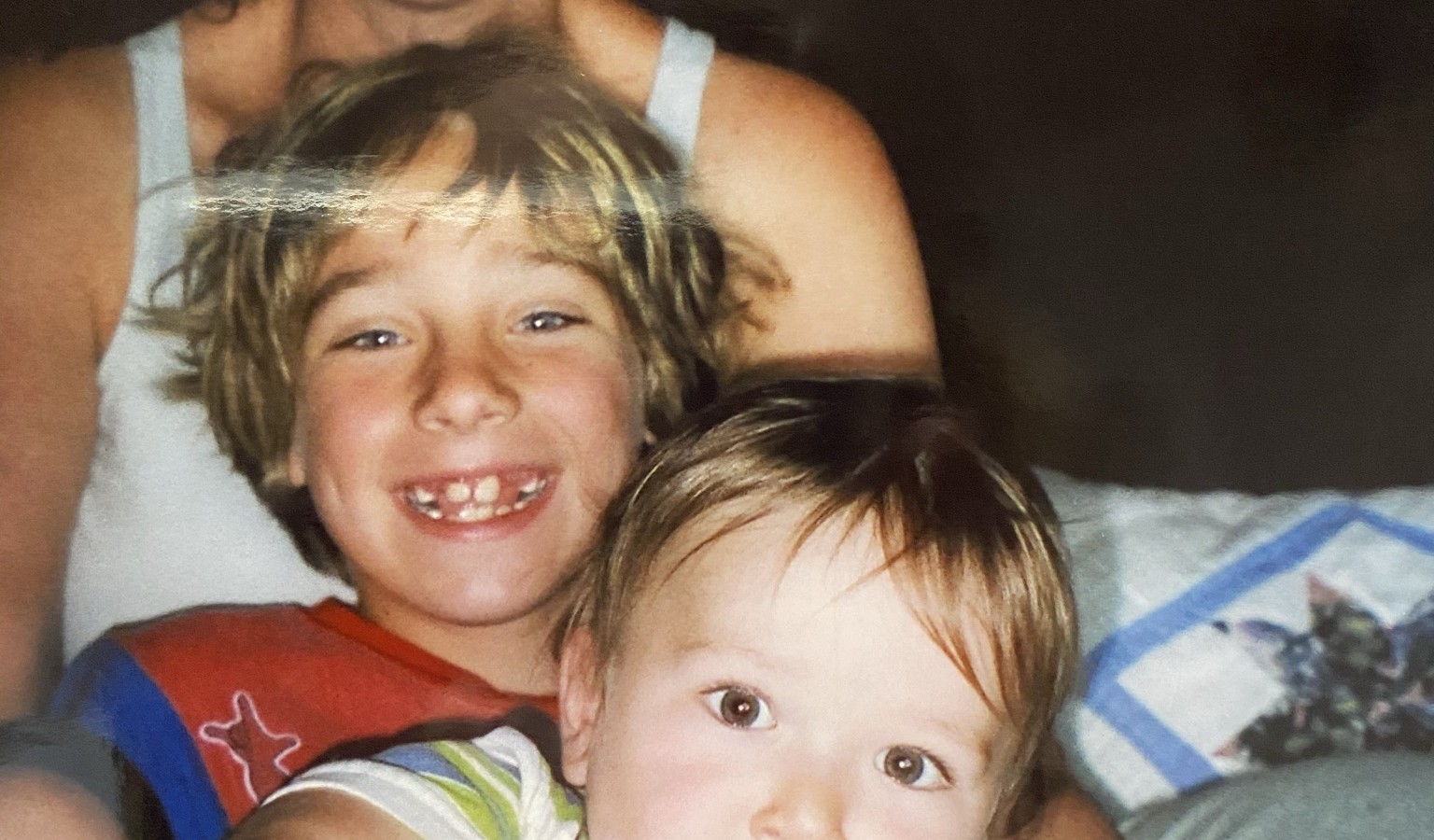When my boys were young I knew intuitively that I had only a few years before they would be spending time with friends and doing activities of their own. Being the focus of their young lives I wanted to be present with them every moment possible. I ended up donating our TV and devoting myself to playing games and reading to them every night. I chose mostly biographies of individuals who were faced with hardship and experienced subsequent thriving to help cultivate their resilience and compassion. It was an interest of mine and I knew it would begin to foster an understanding of growth mindset within my sons for the future. Based on our experiences from then on you might have thought hindsight was 20/20. My oldest, JT, and I had already experienced trauma before my youngest, Jesse, came along. Little did we know we were preparing for the worst which was yet to come.
One of my personal favorites was the Laura Ingalls Wilder series based on the life of Laura, a spunky and spirited young pioneer girl, and her family’s struggles as well as their joy. The characters in this autobiographical narrative represented some of our country’s earliest settlers who migrated west in the late 1800’s. I had only started reading the series to Jesse before he was murdered, but I had already read all eight books in the series detailing Laura’s life to JT. I remember my little boys’ heads nestled beneath each of my arms as we cuddled under the covers and I read about the Ingalls girls’ utter delight at finding a single orange and peppermint stick in their stockings on Christmas morning and our collective wince as they braved extreme conditions and tragedy as early homesteaders on the American Great Plain.
For those of you unfamiliar with the story, the books are centered on Laura who was the middle daughter of three girls, her mother, and her father. They farmed for a living and endured every hardship imaginable: pestilence, storms, starvation, fires, plagues, homelessness, death, and more. However, through each experience of despair they deepened their impenetrable family bond. They faced setbacks together. They laughed, cried, and supported each other with an enduring love grounded in the hope for a brighter and happier future. I can’t help but think about other generations that have endured extreme hardship. In fact, there are some individuals who endured two world wars, the Spanish Flu, and the Great Depression of the ‘30’s, all in one lifetime. And yet they survived, and even thrived, always with and because of love.
As I read these books to Jesse and JT I thought of what I had been through in my life up to that point. Having just been through a brutal divorce and struggling to make ends meet, I appreciated how these individuals endured the unimaginable yet thrived against all odds. I wanted my boys to have that same indomitable spirit and the courage to face difficulties and challenges and understand that they would learn important life lessons amidst the pain and become stronger as a result. As I look back, I realize I needed that for myself, as well. Perhaps the most important lesson we learned in reading accounts of real life paragons such as Helen Keller, Christopher Reeve, Louis Zamperini, Joni Eareckson Tada, and others, is the essential value of not just perseverance but the importance of meaningful connection and healthy relationships. Each of these individuals had compassionate, loving support in their healing efforts. I believe consistent caring is what carried them through — it marked the passage through their traumatic experience to their ultimate victory.
Helen Keller who was struck with a disease that left her blind, deaf, and mute at two years old offered a truth about life when she said, “Character cannot be developed in ease and quiet. Only through experiences of trial and suffering can the soul be strengthened, vision cleared, ambition inspired and success achieved.” The individuals in the stories I read to my sons chose love over fear in their thoughts that impacted how they felt and subsequently determined their behaviors. Of course they felt fear during their journey but they were able to overcome it and that was the defining moment in their lives and the path that led them to flourishing despite their difficult experiences.
Of course, there are essential qualities these people and others who grow through traumatic life circumstances cultivate within themselves. Every one of us needs to recognize that we share the same capacity for great courage and there are ways we can continue to strengthen our bravery. I’m referring to the courage to face adversity and move through it rather than resist or avoid, or even simply numb ourselves to painful occurrences. Laura Ingalls Wilder needed to practice courage when her family faced starvation after locusts destroyed her family’s crops. Christopher Reeve called on courage to help him find meaning in his suffering and use his catastrophic horseback riding injury that paralyzed him from the neck down to raise money for research for others with his condition. When my little boy, Jesse, faced the shooter who barged into his first grade classroom and opened fire on his class, he showed tremendous courage by standing his ground and yelling, “Run!” He stayed by his teacher’s side but saved nine of his classmates. Especially in the most difficult situations we can show courage by being present and choosing love in our thoughtful response. On a day to day basis this might look like being kind when someone isn’t being nice to you, telling the truth, or doing the right thing.
Gratitude is also an integral component in these stories and a powerful element in overcoming adversity. The lens through which survivors see their world is encouraging and hopeful despite detrimental conditions or occurrences. They look for the light at the end of the tunnel and then find inspiration in bright spots along the way. Joni Eareckson utilized gratitude in her journey of learning to live in a wheelchair after a diving accident and breaking her neck. Being grateful for what she had and not focusing on what she had lost strengthened her and helped in her healing process. She’s now a renowned author and motivational speaker, inspiring audiences around the world. Success correlates with positivity. Our ability to recognize the silver lining and focus on what we have rather than lack directly relates to our ability to grow despite circumstance. Appreciation defines a brave heart.
Another imperative in prevailing over hardship is forgiveness. Some of the individuals in the books I read to my boys endured brutal abuse and torture. Louis Zamperini was an Olympic runner in the 1940’s who joined the US Air Force. His plane was shot down in World War II and he was imprisoned in Japanese prison camps and brutally beaten and tortured. The guards tried to coerce him to betray his country but he refused. Decades later he met with and forgave his captors. His life has been made into a feature film called “Unbroken.” The difference between freedom and flourishing or languishing as a prisoner in this own mind, locked in resentment, revenge, and prolonged anger, was his ability to let go of his rage and to embrace mercy and grace through forgiveness. This freed him to find his true purpose and to lead a life filled with love. Forgiveness is also one of the best ways to cultivate healthy relationships and it serves as a key to happiness.
Our society seems to correlate survival with competition as in ‘survival of the fittest.’ In reality, surviving and thriving is literally an outcome of compassion-in-action. We must help each other along the way and this facilitates learning and growing. Compassion has two components. The first is empathy which enables us to connect with others. Meaningful interpersonal connections are the foundation of the endurance needed in these narratives to model resilience. The second is action, helping those outside ourselves that gives us a purpose greater than one’s self. Each of these authors practiced compassion-in-action by sharing their stories with others, detailing how they overcame their circumstances and inspiring others to do the same.
This is the formula for resiliency in our lives that we gleaned from these role models. Every one of them had the courage to face hardship head on, the ability to find gratitude even in the darkest moments, the strength and grace to forgive, and the compassion to step outside their own pain and suffering and focus their awareness on others. In fact, all found meaning in their travails by sharing their stories to help others. In these examples of overcoming adversity, you will find that love is what conquers all and it will lead you to a positive, fulfilling life.
I’m forever grateful that it was before the time of cell phones and online gaming when my boys were young or it might have been more difficult to spend quality time with them. I know from the experience of having lost one of my sons that being present is the optimal way to live your life with the fewest regrets. Being present with one another, learning and growing together with courage, gratitude, forgiveness, and compassion-in-action, even through difficulty, and especially through difficulty, is the best way to instill hope which ultimately leads to resilience and the ability to be strengthened by whatever life throws your way!


